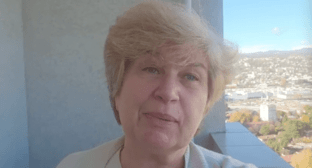
06 July 2019, 11:22
Version of militant-drug addict first voiced out amid frequented attacks in Chechnya
Two attacks on policemen were committed on behalf of the "Islamic State" (IS), a terrorist organization banned in Russia by the court, in Chechnya within a week; therefore, it is beneficial for the authorities to explain the actions of one of the attackers by drug addiction. This is the opinion of the residents of Chechnya and Orientalists interviewed by the "Caucasian Knot".
On July 1, a policeman perished in an attack on a post in the Achkhoi-Martan District. According to the police, the killed attacker was Zelimkhan Musaev, a native of Achkhoi-Martan, a drug addict who was married to a relative of the militants who had left for Syria.
The version that Musaev was a drug addict has attracted the attention of residents of Chechnya, since earlier the authorities had not resorted to this explanation. "Usually, casualties had been declared as the persons that had succumbed to terrorist propaganda," said Idris, a local activist.
The authorities of Chechnya have resorted to the version about a drug addict, since the incident in the Achkhoi-Martan District occurred only a week after the previous attack on law enforcers, Lechi, another activist, believes.
"It's clear that these are serious image losses for the republic's leadership, who keep trumpeting that Chechnya is the safest region of Russia," Lechi has stated.
It is beneficial for the authorities of Chechnya to declare the attacker an ordinary drug addict, not an ideological fighter, according to Akhmet Yarlykapov, an Orientalist, believes.
"To show that terrorism is no longer there, but there are drug addicts who sometimes commit unlawful acts," he explained.
At the same time, Yarlykapov does not exclude that an IS supporter could have used drugs.
The Orientalist believes that the tactic of "lonely wolves" can take place in Chechnya.
This article was originally published on the Russian page of 24/7 Internet agency ‘Caucasian Knot’ on July 6, 2019 at 01:41 am MSK. To access the full text of the article, click here.
Source: CK correspondents




